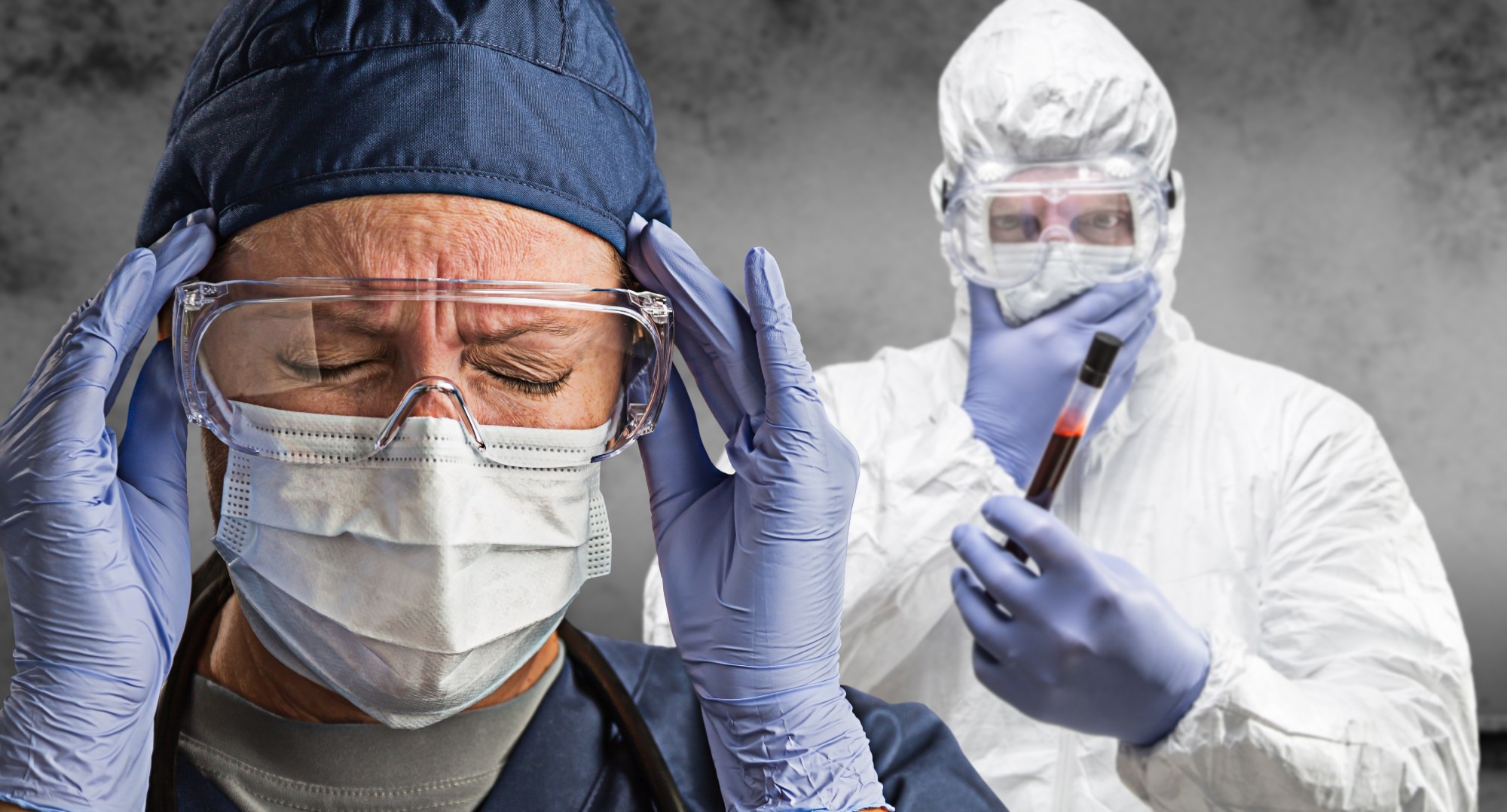In a recent commentary published in the Annals of Internal Medicine, researchers reviewed the usefulness of universal masking in healthcare professionals (HCPs) during the coronavirus disease 2019 (COVID-19) pandemic to present arguments about whether or not it should become an essential component of Standard Precautions, Transmission-Based Precautions (pathogen-specific), and beyond in healthcare settings in the future. In addition, they addressed future situations that could trigger reconsideration of mandatory masking of HCPs.
 Ideas and Opinions: Universal Masking in Health Care Settings: A Pandemic Strategy Whose Time Has Come and Gone, For Now. Image Credit: Andy Dean Photography / Shutterstock
Ideas and Opinions: Universal Masking in Health Care Settings: A Pandemic Strategy Whose Time Has Come and Gone, For Now. Image Credit: Andy Dean Photography / Shutterstock
Current masking policies in healthcare settings
Although the World Health Organization (WHO) has announced that the COVID-19-induced public health emergency is approaching its end, widespread use of masking continues in healthcare settings.
Universal masking was a critical infection prevention and control (IPC) measure when the pandemic began due to the absence of pharmaceutical options, including drug-based treatments and vaccines. Also, at that time, the severe acute respiratory syndrome coronavirus 2 (SARS-CoV-2) testing capacity was limited, and the global population had not attained immunity. Thus, non-pharmaceutical interventions (NPIs) were the only measures for mitigating SARS-CoV-2 transmission.
Under Standard Precautions, HCPs use a face mask and eye protection to protect themselves from exposure during activities that could generate splashes or sprays to the face, regardless of patient symptoms. When caring for patients with suspected or confirmed respiratory infection, HCPs take transmission-based precautions, e.g., they use personal protective equipment (PPE). During the pandemic, mandatory and expanded face masking for HCPs, patients, and visitors in healthcare settings effectively minimized the risk of pathogen transmission. It also reduced the risk of morbidity and mortality due to SARS-CoV-2.
There are both up & downsides to maintaining policies, such as universal masking. Of all its benefits, the most important one is that masks could protect HCPs engaged in direct patient care, irrespective of symptoms or diagnosis, and marginally decrease the risk of transmission from HCP to the patient and vice versa. However, now that SARS-CoV-2 has become stable, there arises a need for careful assessment of its potential incremental benefits against its costs.
In addition to its higher cost, masking hampers communication between HCPs and their patients. These effects are more pronounced in patients whose native language is not English or those with a hearing problem, thus, relying more on nonverbal cues. Such clinical encounters also increase the cognitive load for patients and HCPs. Further, masks hide facial expressions and adversely affect human connection and feelings of trust and empathy. Henceforth, the debate regarding incorporating face masks for HCPs continues.
Future of masking in healthcare settings
Masking policies remain a key IPC strategy. A transition from universal masking policies, like other pandemic strategies, e.g., asymptomatic testing and contact tracing, would require reconsidering their risk–benefit equilibrium. However, spreading awareness among HCPs, patients, and others about the usefulness of masking in healthcare settings and the rationale behind its continued use amid the evolution of the pandemic and SARS-CoV-2's transition to endemicity will be indispensable.
During a future pandemic or a regional disease outbreak, targeted masking policies and their widespread use could become components of a bundled response. However, studies quantifying the incremental value of various intervention measures under different epidemiologic circumstances would help up and down-scale decisions regarding the same.
Providing healthcare systems with high-quality epidemiologic data based on regular reevaluation of regional situations will help ensure that decisions about masking can be reinforced when needed.
In fact, an advisory committee working under the Centers for Disease Control (CDC) is currently reevaluating prevailing transmission-based methodologies to inform future mitigation strategies in healthcare settings. More studies evaluating the risks of transmission from infected HCPs or patients due to different types of respiratory viruses depending on exposure intensity and infection stages could also apprise future policies. Nevertheless, the researchers advocated the dynamic deployment of masking as an IPC strategy that HCPs adapt to as per the ever-changing state of affairs.
Journal reference:
- Universal Masking in Health Care Settings: A Pandemic Strategy Whose Time Has Come and Gone, For Now, Erica S. Shenoy, Hilary M. Babcock, Karen B. Brust, Michael S. Calderwood, Shira Doron, Anurag N. Malani, Sharon B. Wright, Westyn Branch-Elliman, Annals of Internal Medicine 2023, DOI: https://doi.org/10.7326/M23-0793, https://www.acpjournals.org/doi/10.7326/M23-0793